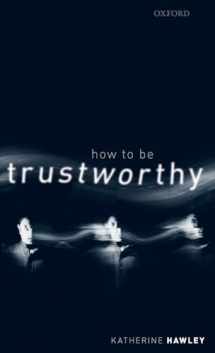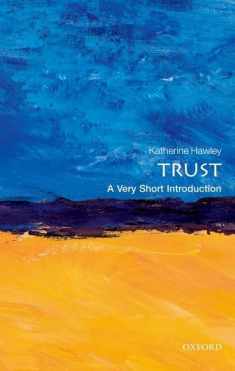
How To Be Trustworthy
Book details
Summary
Description
We become untrustworthy when we break our promises, miss our deadlines, or offer up unreliable information. If we aim to be a trustworthy person, we need to act in line with our existing commitments and we must also take care not to bite off more than we can chew when new opportunities come along. But often it is not clear what we will be able to manage, what obstacles may prevent us from keeping our promises, or what changes may make our information unreliable. In the face of such uncertainties, trustworthiness typically directs us towards caution and hesitancy, and away from generosity, spontaneity, or shouldering burdens for others.
In How To Be Trustworthy, Katherine Hawley explores what trustworthiness means in our lives and the dilemmas which arise if we value trustworthiness in an uncertain world. She argues there is no way of guaranteeing a clean conscience. We can become untrustworthy by taking on too many commitments, no matter how well-meaning we are, yet we can become bad friends, colleagues, parents, or citizens if we take on too few commitments. Hawley shows that we can all benefit by being more sensitive to obstacles to trustworthiness, and recognising that those who live in challenging personal circumstances face greater obstacles than other members of society--whether visibly or invisibly disadvantaged through material poverty, poor health, social exclusion, or power imbalances.


We would LOVE it if you could help us and other readers by reviewing the book
Book review




